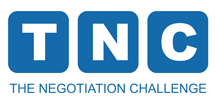In negotiation, power is the ability to influence the other party’s behavior. It can come from a variety of sources, including:
- BATNA: Your BATNA, or best alternative to a negotiated agreement, is the best deal you could get if the negotiation fails. The stronger your BATNA, the more power you have in the negotiation.
- Leverage: Leverage is the ability to make the other party pay a high price for walking away from the negotiation. This can be created by having something that the other party wants, such as a valuable asset or a key resource.
- Information: Information can be a powerful source of power in negotiation. If you have more information than the other party, you can use that information to your advantage.
- Status: Status can also be a source of power in negotiation. If you have a higher status than the other party, they may be more likely to give you what you want.
- Personality: Your personality can also be a source of power in negotiation. If you are confident and assertive, you will be more likely to influence the other party’s behavior.
There are various sources of power that negotiators can leverage to gain an advantage in the negotiation process. These sources of power include:
- Informational Power: Having access to valuable or unique information that the other party does not possess can be a significant source of power. Informational power allows a negotiator to influence the other party’s decision-making by providing critical data, insights, or market knowledge.
- Expertise Power: Demonstrating expertise, skills, or specialized knowledge in a particular field can enhance a negotiator’s power. When a negotiator is recognized as an expert, their opinions and recommendations carry more weight, making it easier to influence the other party.
- Legitimate Power: This power stems from a person’s position or title within an organization or society. For instance, a CEO or government official may have legitimate power, and their decisions can carry considerable weight in negotiations.
- Reward Power: A negotiator who can offer desirable rewards or incentives to the other party has reward power. These rewards could be financial benefits, promotions, favors, or any other positive outcomes that the other party seeks.
- Coercive Power: Coercive power is the ability to impose negative consequences or punishment on the other party. It can be wielded through threats, sanctions, or other means of punishment to dissuade the other party from pursuing certain actions.
- Referent Power: Referent power is based on the personal admiration, trust, and liking the other party has for a negotiator. When the other party respects and looks up to the negotiator, they are more likely to agree with their proposals.
- Network Power: Having a strong network of connections and alliances can enhance a negotiator’s power. A negotiator with extensive connections may be able to call upon support or collaboration from others, increasing their influence.
- Time Power: Time can be a crucial source of power in negotiations. Having flexibility with deadlines or being able to wait out the other party can create pressure on them to make concessions.
- Scarcity Power: If a negotiator possesses something rare or in high demand, they can wield scarcity power. The other party may be more willing to agree to their terms to gain access to that scarce resource.
Effective negotiators understand these different sources of power and use them strategically to achieve their negotiation goals. It’s important to note that the balance of power can shift during the negotiation process, and skilled negotiators adapt their approach accordingly.
Here are some examples of how power can be used in negotiation:
- A seller might use their BATNA to pressure a buyer into paying a higher price for their house. The seller knows that the buyer wants the house, and that the buyer’s BATNA is to buy a different house. This gives the seller some leverage in the negotiation.
- A union might use their leverage to pressure a company into giving their members a raise. The union knows that the company needs the union’s members to operate, and that the company’s BATNA is to operate without the union. This gives the union some leverage in the negotiation.
- A politician might use their status to pressure a foreign government into making concessions. The politician knows that the foreign government wants to maintain good relations with their country, and that the government’s BATNA is to have poor relations with their country. This gives the politician some leverage in the negotiation.
In all of these cases, the parties are using their power to influence the other party’s behavior. By understanding the different sources of power, you can increase your chances of success in negotiation.
